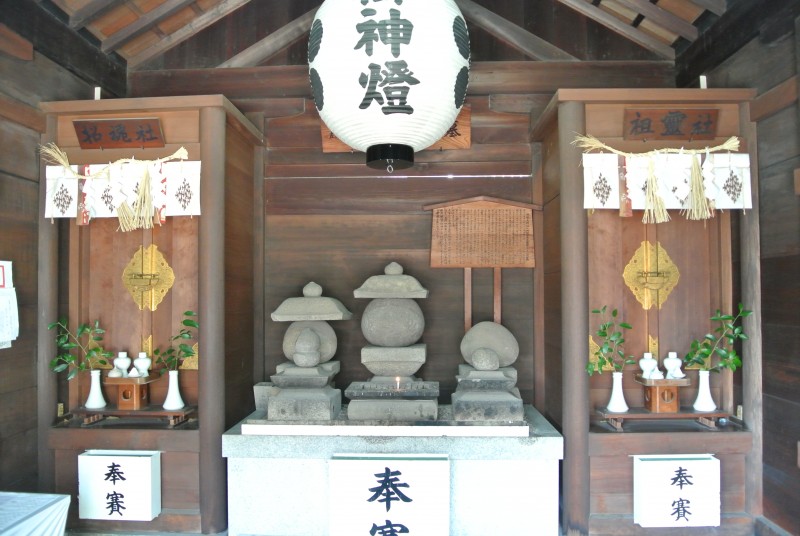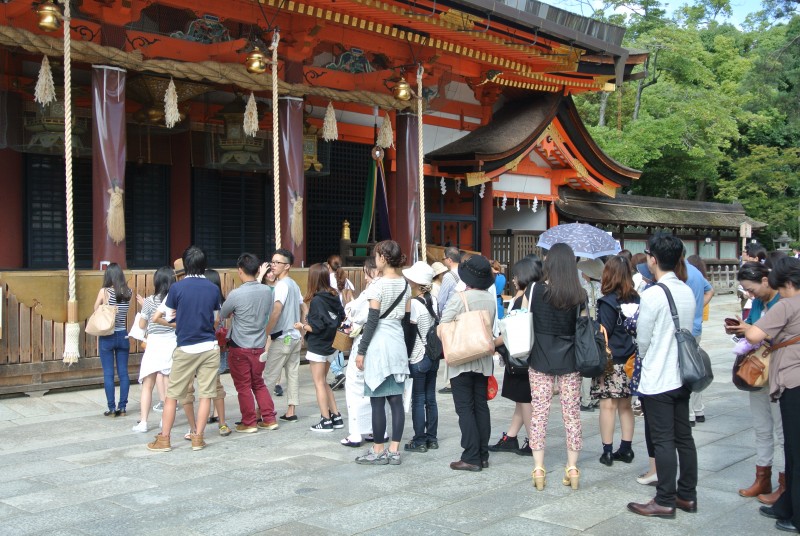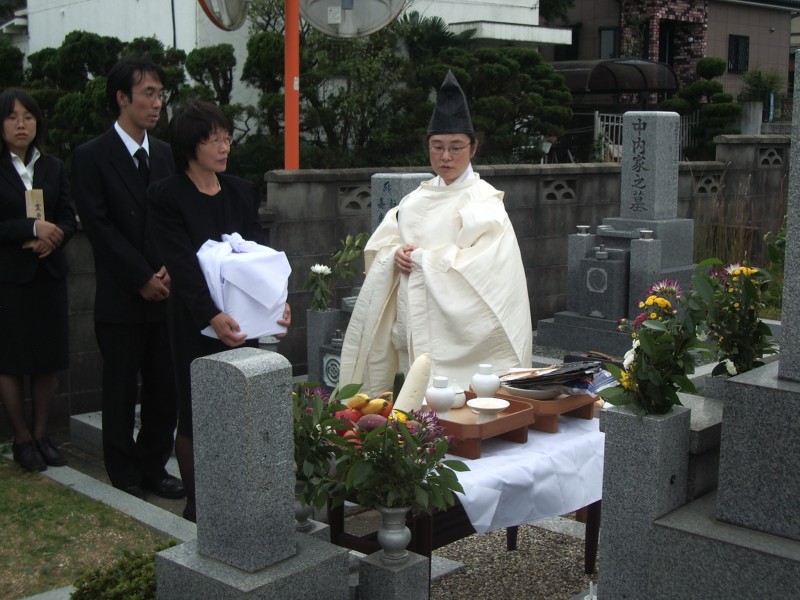 Hearn is noted for his sensitivity and understanding of Shinto animism, but he also had a fine appreciation of the ancestral side of Shinto. This is evident in the first of his Japanese books, Glimpses of Unfamiliar Japan (1894), which contains sentiments that dovetail with my own. Indeed, I’ve written of them in previous articles though not with the same eloquence as that master wordsmith of more than a hundred years ago. (See here or here or here.)
Hearn is noted for his sensitivity and understanding of Shinto animism, but he also had a fine appreciation of the ancestral side of Shinto. This is evident in the first of his Japanese books, Glimpses of Unfamiliar Japan (1894), which contains sentiments that dovetail with my own. Indeed, I’ve written of them in previous articles though not with the same eloquence as that master wordsmith of more than a hundred years ago. (See here or here or here.)

Prayers in Japan are to the spirit of dead ancestors
Shinto seemed to Hearn an ‘occult force.. part of the Soul of the Race.’ In this respect it was close to his own thinking, which had developed under the influence of the evolutionary psychologist, Herbert Spencer. It consisted of a notion of the dead ruling over the living in that their ‘ghostly presences’ had shaped the present. Yet this was not all, for Hearn thought that our body cells had ‘inherited memories’ from previous existences, whether in human or animal or even inanimate form.
From the outset of his time in Japan, Hearn therefore found himself sympathetic to the reverence in Shinto shown to ancestors. Moreover, in contrast to other foreigners, it was easy for him to accept that the dead become gods ruling over us, or that the dead are no less real than the living. It was a different concept from the idea of individual reincarnation, as is evident in the following passage.
‘When we become conscious that we owe whatever is wise or good or strong or beautiful in each one of us, not to one particular inner individuality, but to the struggles and sufferings and experiences of the whole unknown chain of human lives behind us, reaching back into mystery unthinkable, – the worship of ancestors seems an extremely righteous thing to do.’
Later in his last book on Japan: An Attempt at Interpretation (1904) Hearn was to put forward the thesis that the whole of Japanese culture was based on the worship of ancestors, whether in familial, local or national form. It’s a book that has stood the test of time, and is remarkably relevant still at a time when the government of Japan is looking to Yasukuni and Ise Jingu as buttresses for its reactionary ideology. Together the ancestral ghosts of one and the imperial ancestors of the other show just how powerful a force the dead of Japan remain in terms of governing the living. Small wonder then that Hearn had an obsession with ghosts!


Interesting and informative – really enjoy your web site
I am now in the second volume of “Glimpses” thanks to your encouragement.
Thank you for the feedback, Janet, and it’s nice to know that readers are following up on postings. I do hope you’re enjoying Glimpses, but if you made the Second Volume I guess you are…